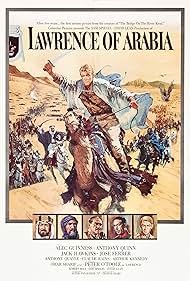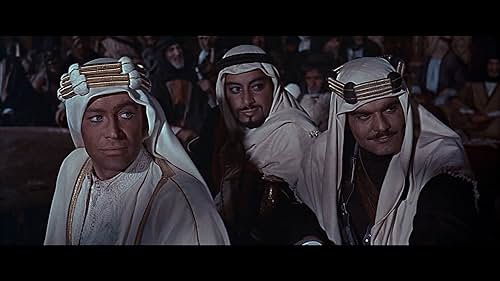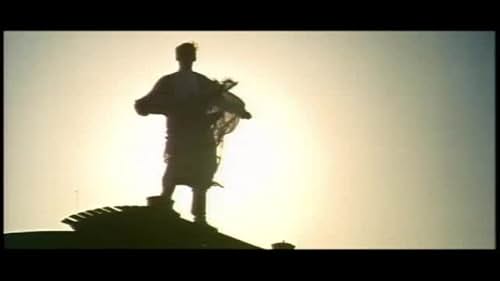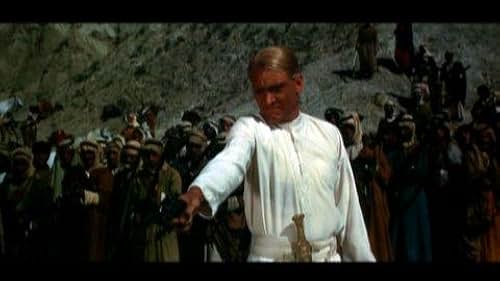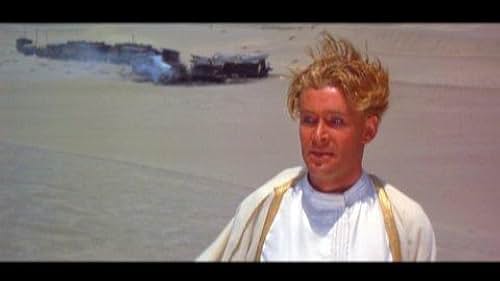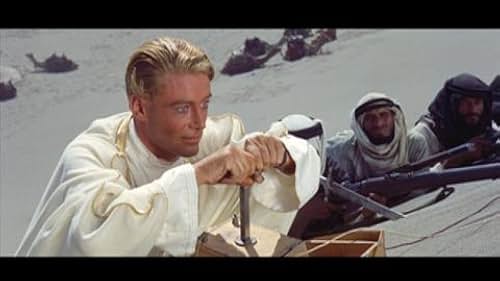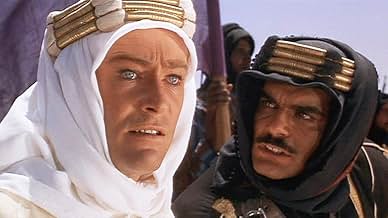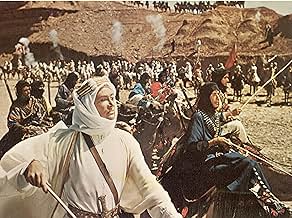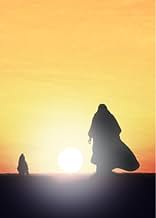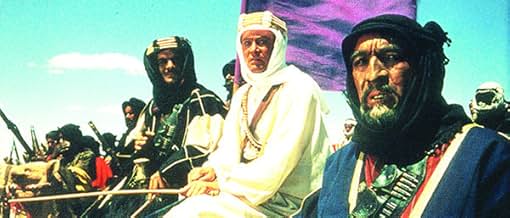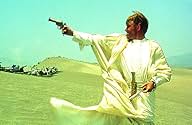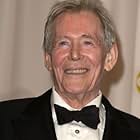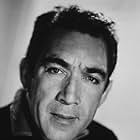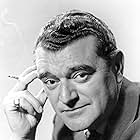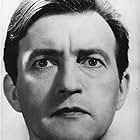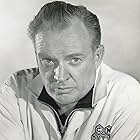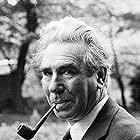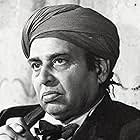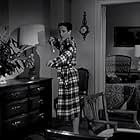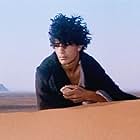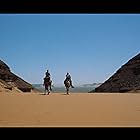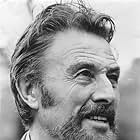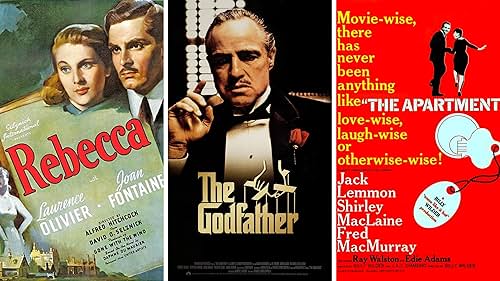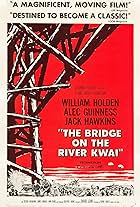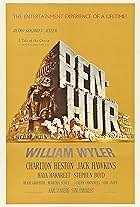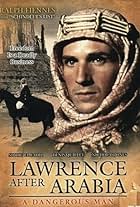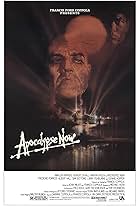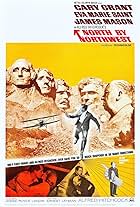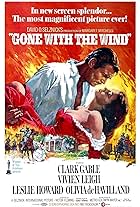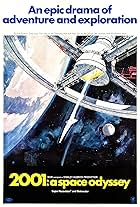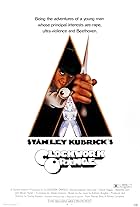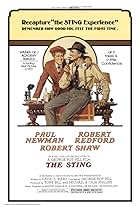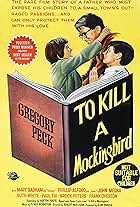The story of T.E. Lawrence, the English officer who successfully united and led the diverse, often warring, Arab tribes during World War I in order to fight the Turks.The story of T.E. Lawrence, the English officer who successfully united and led the diverse, often warring, Arab tribes during World War I in order to fight the Turks.The story of T.E. Lawrence, the English officer who successfully united and led the diverse, often warring, Arab tribes during World War I in order to fight the Turks.
- Won 7 Oscars
- 31 wins & 14 nominations total
- Turkish Bey
- (as Jose Ferrer)
- Medical Officer
- (as Howard Marion Crawford)
- Director
- Writers
- All cast & crew
- Production, box office & more at IMDbPro
Best Picture Winners by Year
Best Picture Winners by Year
Storyline
Did you know
- TriviaThis movie was banned in many Arab countries as they felt Arab historical figures and the Arab peoples were misrepresented. Omar Sharif arranged a viewing with President Gamal Abdel Nasser of Egypt to show him that there was nothing wrong with the way they were portrayed. Nasser loved the movie and allowed it to be released in Egypt, where it went on to become a monster hit.
- GoofsWhen Lawrence is being escorted across the desert on his way to Faisal's camp, his Bedu guide offers to share his food with him. Lawrence is somewhat reluctant but is anxious to show that, unlike other Brits, he is at one with the desert people. He reaches into the guide's proffered dish and takes a morsel - but with his left hand, and he does it twice. The Bedu shows no reaction, but he should: among the desert Bedouin tribes, who eat by hand, the left is kept away from the food as it is the hand with which they clean themselves after defecating. It could be that the guide is observing another Bedouin custom, that of warm hospitality and unstinting generosity to strangers, and is too polite to mention the gaffe (he would probably be aware that many outsiders do not know of the taboo), but it is more likely that it is a genuine error. Peter O'Toole is left-handed, and though he goes to great lengths throughout the rest of the movie to do things right-handedly (T.E. Lawrence was right-handed), this was probably a momentary lapse that no one noticed, or thought to mention.
- Quotes
[Lawrence has just extinguished a match between his thumb and forefinger. William Potter surreptitiously attempts the same]
William Potter: Ooh! It damn well 'urts!
T.E. Lawrence: Certainly it hurts.
Officer: What's the trick then?
T.E. Lawrence: The trick, William Potter, is not minding that it hurts.
- Crazy creditsThe opening credits read: Introducing Peter O'Toole as T.E. Lawrence. However, that "Introducing" credit is false as O'Toole had already played roles in Kidnapped (1960), The Day They Robbed the Bank of England (1960) and The Savage Innocents (1960).
- Alternate versionsThere are technically four versions of the film: the original 222 minute print, then cut to 202 minutes after its 1962 premiere, the 187 minute 1970 theatrical re-cut and the 228 minute including the overture, entr'acte music and play-out music in the 1988 restoration. Full details as follows: Originally released at 222 minutes for the UK premiere in December 1962. Shortly after premiere which took place in London in December 1962, David Lean, reportedly under the orders of producer Sam Spiegel, cut 20 minutes from the film to 202 minutes. Cuts included the shot of goggles on the tree, Brighton's "remarkable man" line to the priest, early shots of the drafting room scene, the whole officer's mess sequence where he's called a clown and upsets water on someone, and some dialogue between the General and Dryden. The 1970 theatrical re-release cut the film further to 187 minutes. The film was restored in 1988 at 228 minutes. This version, supervised by David Lean, was advertised as a Director's Cut and has been the version made available to home video formats since.
- ConnectionsFeatured in Hollywood: The Great Stars (1963)
- SoundtracksThe Man Who Broke the Bank at Monte Carlo
(uncredited)
Written by Fred Gilbert
Sung a-cappella by Peter O'Toole
Over the years, Lawrence remained among my DVD collection, and I can't say I actually watched it since that first time, when, by the way, I didn't really like it. But "time does things to movies", and when I watched it again last year, I found my eyes to be weeping at the end. It instantly became one of my favorite movies.
Since then I learned a lot about the history of cinema, and I also learned a great deal about the movies of Sir David Lean. I found my self watching films like "Brief Encounter", "The Bridge on the River Kwai", "Doctor Zhivago", "Ryan's Daughter", and the underrated, "A passage to India". Lean became one of my favorite directors, and, just a few months ago, I decided to watch Lawrence with some friends. Although I had seen it a couple of times before, this time it was a different experience altogether: from the starting credits, to the blowing of the match, the crossing of the Nefud dessert, finding Gassim and bringing him back to the camp, the invasion of Aqaba, his torture and rape (?), Lawrence's laugh after the slap by the "outrageaous" guy, his being left alone, to the final gaze to the motorcycle. I sensed something when I watched that film, which leaves my with the undoubted feeling that "Lawrence of Arabia" is the greatest film ever made. For me, this is it. Ever since '62, it's been a downfall. No other film has managed to reach Lawrence in its poetic greatness. Few do come very close (Vertigo for instance).
If we are to classify the two complete different cinematic styles, it would be those of Hitchcock and Ford. Hitch was a very "confined" director. He captured his movies from the point of view of one character. His movies took place, most of the time, in closed spaces. In a sense, Hitchcock's films were a journey in people's emotions and a study in people's characters. On the other hand, Ford was an open director. He wasn't confined to one character, or one location, his films where actual journeys. His basis was mostly on theme, and his main ability was to amaze with his imagery. Thus, these are the two different shooting styles....Well, Lean combines both.
Which is basically why his best film, Lawrence, is the best film of all times. But not only in terms of style. Also, in terms of content. The intelligent script written by Robert Bolt, the powerhouse performances by O'Toole and Shariff (a shame they didn't get the statuette), but also, the ultimately heroic yet tragic figure of T.E. Lawrence, contribute in making this the most visually and emotionally sweeping film of the last 111 years.
Such a shame that Lean retired for 14 years after "Ryan's Daughter", there's no way to know where he would have gotten.
Details
- Release date
- Countries of origin
- Official site
- Languages
- Also known as
- Lawrence de Arabia
- Filming locations
- Wadi Rum, Jordan(desert - red cliffs)
- Production company
- See more company credits at IMDbPro
Box office
- Budget
- $15,000,000 (estimated)
- Gross US & Canada
- $45,306,425
- Opening weekend US & Canada
- $20,846
- Sep 22, 2002
- Gross worldwide
- $45,763,719
- Runtime3 hours 47 minutes
- Color
- Sound mix
- Dolby Atmos
- Magnaphone Western Electric(original version)
